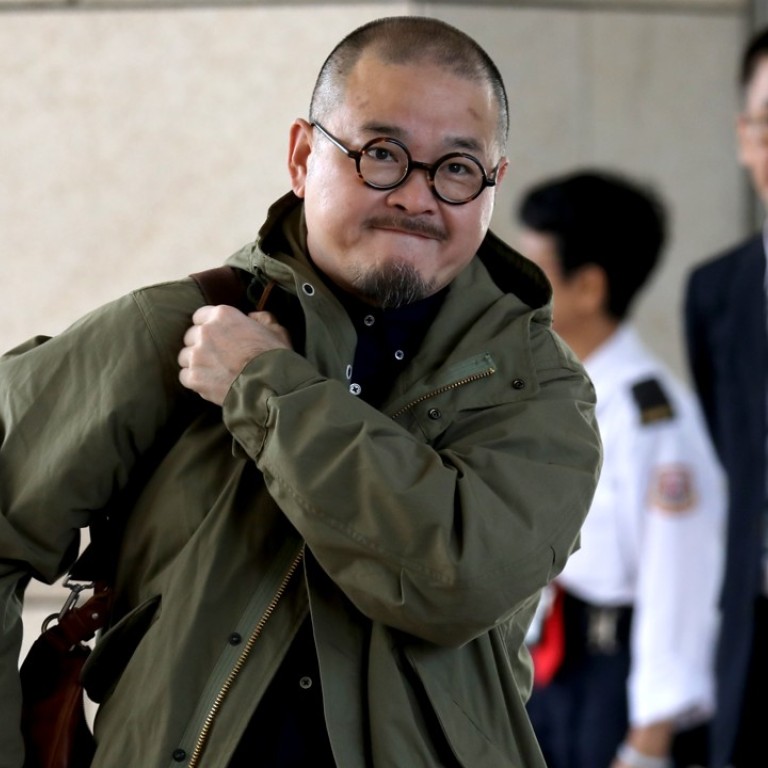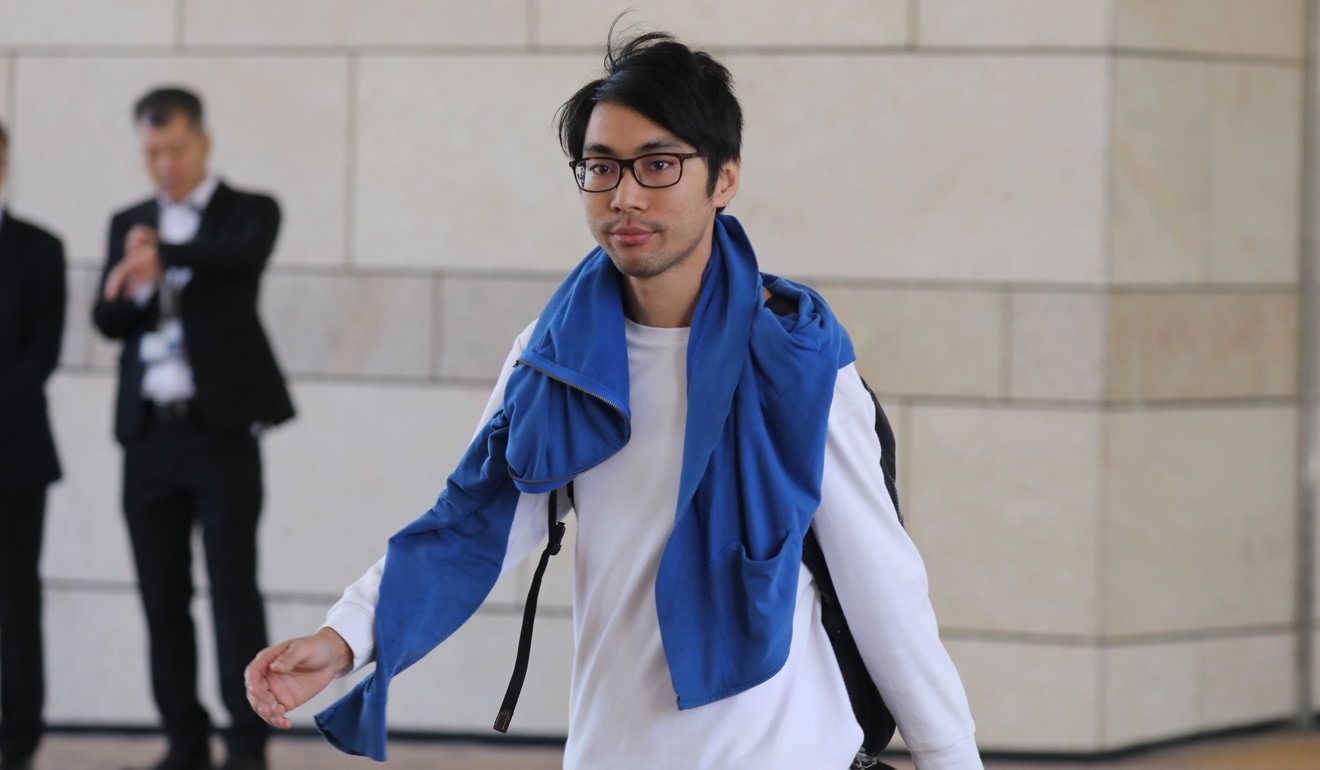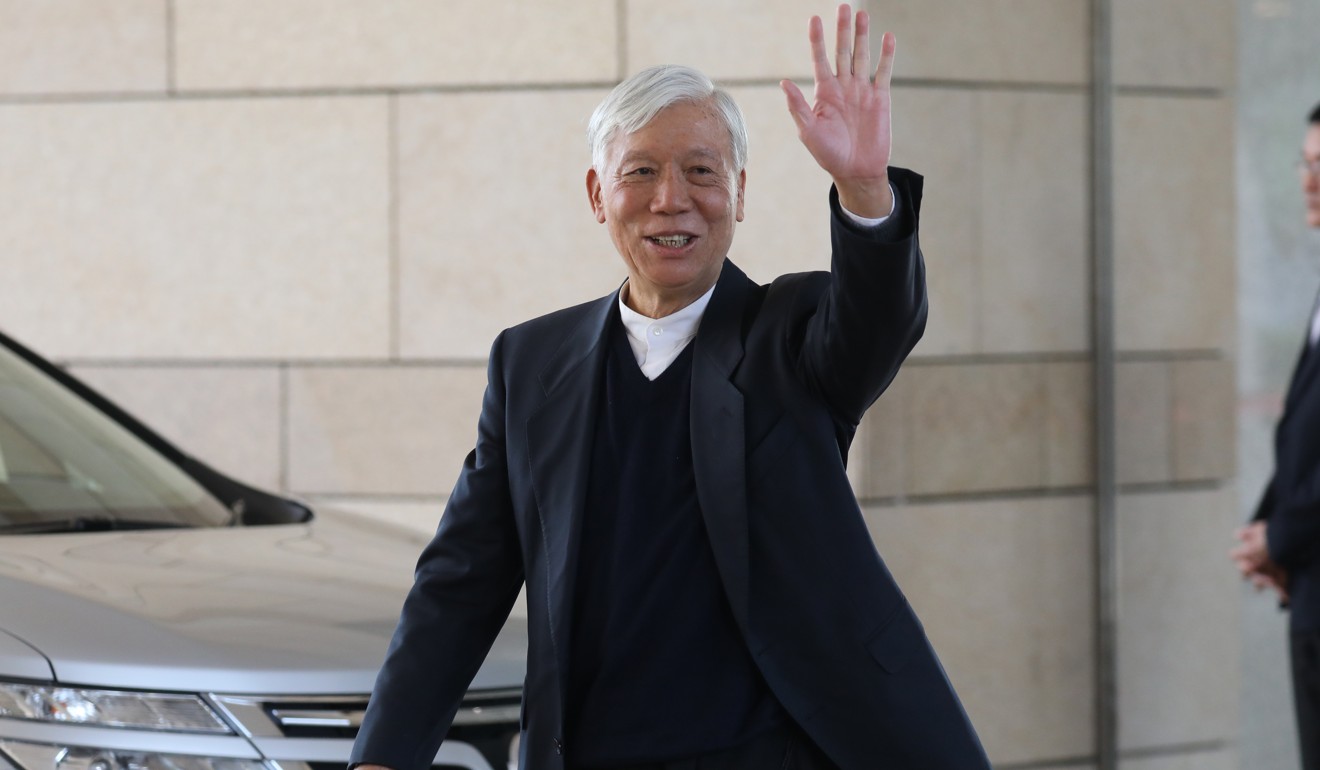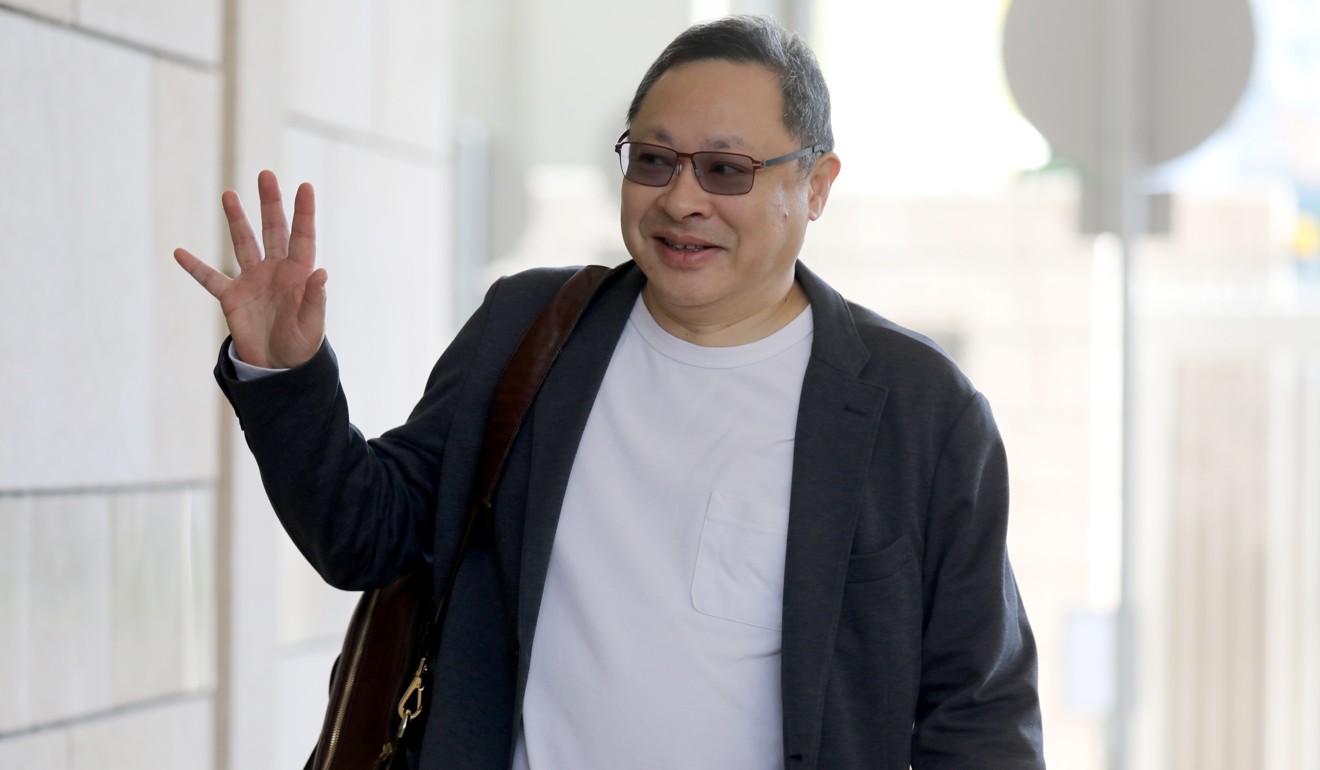
Footage of Occupy leaders calling for crowd to surround police proves they incited protest, prosecutors argue in Hong Kong court
- Lawmaker Shiu Ka-chun asked protesters to stop police van as protesters’ audio equipment had been taken, clips played by prosecution shows
Video footage played at West Kowloon Court on the third day of the public nuisance trial of nine Occupy figures showed lawmaker Shiu Ka-chun asking protesters to stop a police van.
Shiu had learned that protesters’ audio equipment, and some pro-democracy lawmakers and scholars had been taken to the vehicle.
“We need more and more people to lend us a hand,” he told a crowd of protesters from a stage.
A student leader, Eason Chung Yiu-wa, told the crowd to converge around police officers so that they could not disperse protesters so easily, the footage showed.

The clips were played by prosecutors, who argued the footage was proof that Shiu, 49, Chung, 26, and seven other key Occupy figures had incited the protests – also known as the Umbrella movement – which brought major parts of the city to a standstill.
The civil disobedience movement, which began on September 28 that year, came on the heels of restrictive political reform proposals announced by Beijing in August. The plans stopped short of granting Hong Kong open nominations in elections for the city’s leader, prompting protesters to take to the heart of the city to block major thoroughfares.
But prosecutors labelled their attempt a “calculated” plot to jam Harcourt Road, Fenwick Pier Street and Tim Mei Avenue – arteries connecting the busy business area from Wan Chai to Central – to press the city’s government to respond of their political demands.
Three Occupy founders, academics Benny Tai Yiu-ting, 54, and Dr Chan Kin-man, 59, as well as Reverend Chu Yiu-ming, 74, denied three joint charges: one of conspiracy to cause public nuisance; one of inciting others to cause public nuisance; and one of inciting people to incite others to cause public nuisance.

Chung, Shiu, legislator Tanya Chan, 47, former student leader Tommy Cheung Sau-yin, 24, and Raphael Wong Ho-ming, 30, vice-chairman of the League of Social Democrats, denied the two incitement charges.
Former Democratic Party lawmaker Lee Wing-tat, 63, denied one count of incitement to commit public nuisance.
The video clips captured Tai declaring the start of the Occupy campaign on a stage set up outside government headquarters at Tim Mei Avenue in the early morning of September 28. That afternoon, it was Shiu’s turn to host the event.
Occupy ringleaders spent year planning protest, claim prosecutors
“Police had refused to let our audio equipment through,” Shiu told the crowd, referring to an incident at a nearby roundabout.
Shortly afterwards, he said police had confiscated the equipment, with officers arguing the gear was for an illegal assembly. They also escorted a few supporting lawmakers and academics, including the Labour Party’s Fernando Cheung Chiu-hung and political scientist Joseph Cheng Yu-shek, to the police vehicle where they placed the equipment.
Shiu then called for help to block the vehicle from leaving.

Chung told the protesters to reinforce their defence lines at Tim Mei Avenue and Harcourt Road, and asked them to surround police officers at the site.
Only then, he said, would they not dare to abuse their power.
“The chance of them breaking us up will also be reduced,” he added.
Each charge carries a maximum jail sentence of seven years.
The trial continues before Judge Johnny Chan Jong-herng on Thursday.

